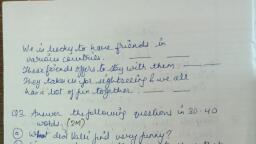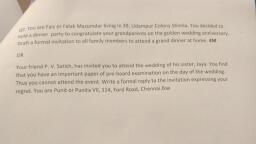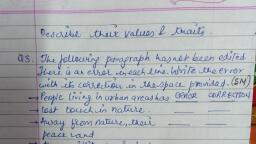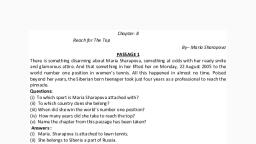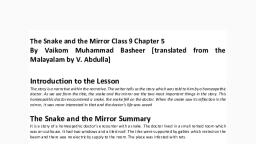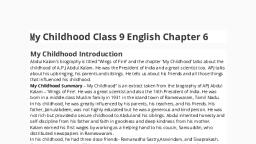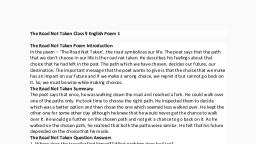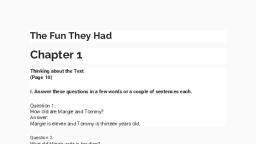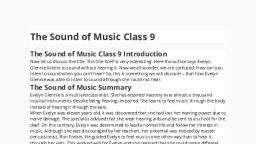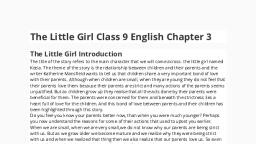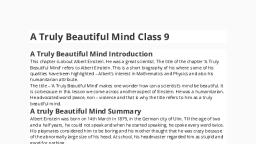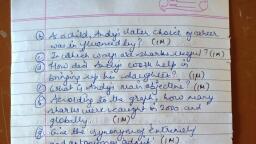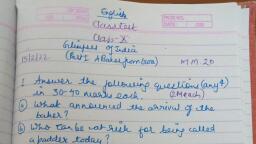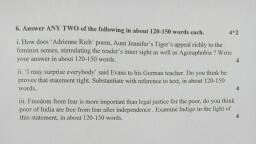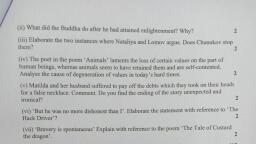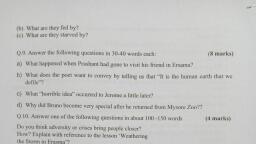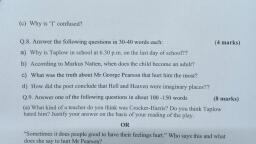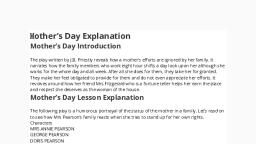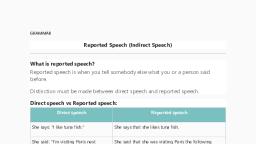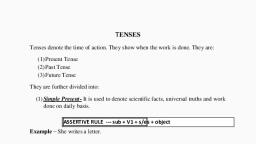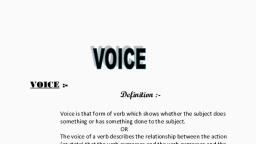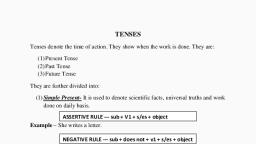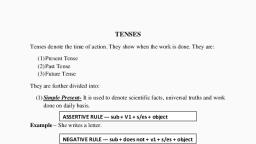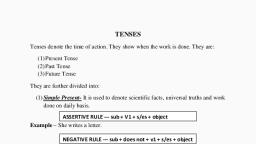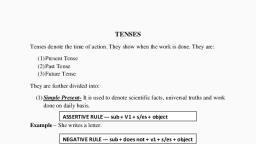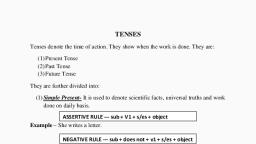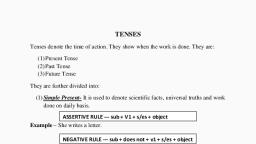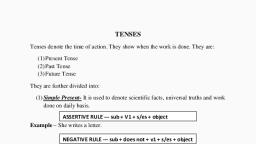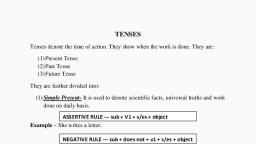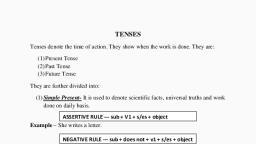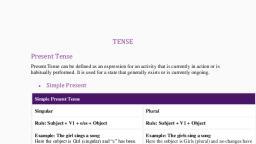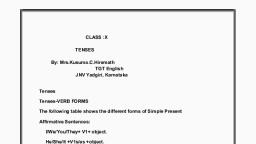Page 1 :
TENSES, Tenses denote the time of action. They show when the work is done. They are:, (1) Present Tense, (2) Past Tense, (3) Future Tense, They are further divided into:, (1) Simple Present- It is used to denote scientific facts, universal truths and work, done on daily basis., ASSERTIVE RULE --- sub + V1 + s/e s + object, Example – She writes a letter., NEGATIVE RULE --- sub + does not + v1 + object, Example – She does not write a letter., INTERROGATIVE RULE --- Does + sub + v1 + object Example – Does she, write a letter?, INTERROGATIVE N, , EGATIVE ASSERTIVE --- Does + sub + not + v1 + object, , Example – Does she not write a letter?, (2) Present Continuous– It is used to express an action taking place at the time, of speaking., ASSERTIVE RULE --- sub + is/am/are + v1 + ing + object Example –, she is writing a letter., NEGATIVE RULE --- sub + is/am/are + not + v1 + ing + object Example –, She is not writing a letter.
Page 2 :
INTERROGATIVE RULE --- is/am/are + sub + v1 + ing + object Example –, Is she writing a letter?, INTERROGATIVE NEGATIVE RULE --- is/am/are + sub + not + v1 + ing + object, Example – Is she not writing a letter?, (3) Present Perfect– It is used to show an action that started in the past and has, just finished., ASSERTIVE RULE --- sub + has/have + v3 + object Example- She, has written a letter., NEGATIVE RULE --- sub + has/have + not + v3 + object, , Example –, , She has not written a letter., INTERROGATIVE RULE --- has/have + sub + v3 + object, Example- Has she written a letter?, INTERROGATIVE NEGATIVE RULE ---has/have + sub + not + v3 + object, Example– Has she not written a letter?, (4) Present Perfect Continuous– This tense shows the action which started in, the past and is still continuing., ASSERTIVE RULE --- sub + has/have + been + v1 + ing + object, Example – She has been writing a letter., NEGATIVE RULE --- sub + has/have + not been + v1 + ing + object, Example– She has not been writing a letter., INTERROGATIVE RULE ---has/have + sub + been + v1 + ing + object, Example – Has she been writing a letter?
Page 3 :
INTERROGATIVE NEGATIVE RULE --- has/have + she + not + been + v1 + ing +, object Example – Has she not been writing a letter?, , Past Tense, Tense symbolizes the ever moving, non-stop wheel of time which is forever busy, gathering moments of future and throwing them into the dustbin of past, Past (before, now), , Simple Past, , Past, Continuous, , Past Perfect, , Past Perfect, Continuous, , Simple Past, Used to indicate an action completed in the past. It often occurs with adverb of, time. Sometimes it is used without an adverb of time., Used for past habits., Eg. I played football when I was a child., Rule: Subject + V2, Eg She wrote a letter, 1. Assertive Sentences – Subject + V2 + Object + (.) She, wrote a letter.
Page 4 :
2. Negative Sentences-, , Subject + didn’t + V1 + Object + (.), She didn’t.write a letter., 3. Interrogative SentencesDid + Subject + V1 + Object + (?) Did, she write a letter?, 4. Interrogative Negative Sentences- Did + Subject + not +, V1 + Object + (?) Did she not write a letter?, Past Continuous Tense, Used to denote an action going on at some time in the past., e.g. I was driving a car. Rule:, was/were + ing, 1. Assertive Sentences –, Subject + was/were +V1+ ing + Object + (.) She, was writing a letter., 2. Negative SentencesSubject + was/were + not + ing + Object + (.), She was not writing a letter., 3. Interrogative SentencesWas/were + Subject + ing+ Object + (?) Was, she writing a letter?, 4. Interrogative Negative SentencesWas/were + Subject + not + ing+ Object + (?), Was she not writing a letter?, , Past Perfect Tense, Used to describe an action completed before a certain moment in the past, usually a, long time ago. If two actions happened in the past, past perfect is used to show the, action that took place earlier., e.g. The patient had died before the doctor came., 1. Assertive Sentences –
Page 5 :
Subject + had + V3 + Object + (.) She, had written a letter., 2. Negative SentencesSubject + had + not + Object + (.) She, had not written a letter., 3. Interrogative SentencesHad + Subject + V3 + Object + (?) Had, she written a letter?, 4. Interrogative Negative Sentences- Had + Subject + not + V3 + Object +, (?) Had she not written a letter?, Past Perfect Continuous Tense, Used to denote an action that began before a certain point in the past and continued, up to some time in past., e.g. I had been learning English in this school for 20 days., 1. Assertive Sentences –, Subject + had been +V1 + ing + Object + (.), She had been writing a letter., 2. Negative SentencesSubject + had + not been + V1+ ing + Object + (.) She, had not been writing a letter., 3. Interrogative SentencesHad + Subject+ been+ V1 + ing + Object + (?), , Had she been writing a letter?, 4. Interrogative Negative SentencesHad + Subject +not + been + V1 + ing + Object + (?) Had, she not been writing a letter?
Page 6 :
FUTURE TENSE, , Time and tide wait for no man. So, a period of time following the moment of, speaking or writing is called as future tense., For e.g- She will write a letter., , Tense, , Past (before, now), , Present (now), , Simple Future, , Future (After, now), , Future, Continuous, , Future Perfect, , Future Perfect, Continuous, , Simple Future, This tense tells us about an action which has not occurred yet and will occur after, saying or in future, Rule – Will/Shall + Verb (Ist form), In Future Tense helping verb ‘Shall’ is used with ‘I’ and ‘We’. Helping verb ‘Will’, is used with all others. When you are to make a commitment or warn someone or, emphasize something, use of 'will/shall' is reversed. ‘Will’ is used with ‘I’ & ‘We’, and 'shall' is used with others.
Page 7 :
In general speaking there is hardly any difference between 'shall & will' and, normally ‘Will’ is used with all., Now, let us use this rule in various forms of sentences;, 1. Positive / Affirmative Sentences –, Subject + Will/Shall + Verb (Ist form) + Object + (.) She, will write a letter., 2. Negative SentencesSubject + Will/Shall + Not + Verb (Ist form) + Object + (.), She will not write a letter., 3. Interrogative SentencesWill/Shall + Subject + Verb (Ist form) + Object + (?) Will, she write a letter?, 4. Interrogative Negative SentencesWill/Shall + Subject + Not + Verb (Ist form) + Object + (?) Will, she not write a letter?, , Future Continuous Tense, It is used to express an ongoing or continued action in future., e.g. He will be distributing sweets in temple tomorrow at 12 o'clock., In the example, the action will start in future (tomorrow) and action is thought to be, continued till sometime in future., We use the future continuous to talk about something that will be in progress at or, around a time in the future., Rule: Will/Shall + Be + Verb (Ist form) + Ing, , Now, let us use this rule in various forms of sentences ;, 1. Positive / Affirmative Sentences –, Subject + Will/Shall + Be + Verb (Ist form) + Ing + Object + (.), She will be writing a letter., 2. Negative SentencesSubject + Will/Shall + Not + Be + Verb (Ist form) + Ing + Object + (.), She will not be writing a letter., 3. Interrogative SentencesWill/Shall + Subject + Be + Verb (Ist form) + Ing + Object + (?)
Page 8 :
Will she be writing a letter?, 4. Interrogative Negative SentencesWill/Shall + Subject + Not + Be + Verb (Ist form) + Ing + Object + (?), , Will she not be writing a letter?, Future Perfect Tense, It is used to express an action which will happen/occur in future and will be, completed by a certain time in future., We use the future perfect to say that something will be finished by a particular time, in the future., e.g. They will have shifted the house by Sunday morning., Rule: Will/Shall + Have + Verb (3rd form), , Now, let us use this rule in various forms of sentences ;, 1. Positive / Affirmative Sentences –, Subject + Will/Shall + Have + Verb (3rd form) + Object + (.) She, will have written a letter., 2. Negative SentencesSubject + Will/Shall + Not + Have + Verb (3rd form) + Object + (.) She, will not have written a letter., 3. Interrogative SentencesWill/Shall + Subject + Have + Verb (3rd form) + Object + (?) Will, she have written a letter?, 4. Interrogative Negative SentencesWill/Shall + Subject + Not + Have + Verb (3rd form) + Object + (?), Will she not have written a letter?
Page 9 :
Future Perfect Continuous Tense, , It is used to talk about actions that will commence at a fix time in future and will, continue for some time in future., If there is no time reference, then it is not a Future perfect continuous tense., Without continued time reference, such sentences are Future Continuous Tense., Continued time reference only differentiates between Future Continuous Tense and, Future Perfect Continuous Tense., The future perfect progressive emphasize the duration of an activity that will be in, progress before another time or event in the future., e.g. This time tomorrow, I will be enjoying the cricket match in the stadium., It is also used to talk about planned actions or actions expected to happen., e.g. They will be staying for a week’s, The future perfect progressive emphasize the duration of an activity that will be in, progress before another time or event in the future., Rule: Will/Shall + Have been + Verb (Ist form) + Ing, , Now, let us use this rule in various forms of sentences;, 1. Positive / Affirmative Sentences –, Subject + Will/Shall + Have been + Verb (Ist form) + Ing + Object + (.), She will have been writing a letter., 2. Negative SentencesSubject + Will/Shall + Not + Have been + Verb (Ist form) + Ing + Object+ (.) She, will not have been writing a letter., 3. Interrogative SentencesWill/Shall + Subject + Have been + Verb (Ist form) + Ing + Object +(?), Will she have been writing a letter?, 4. Interrogative Negative SentencesWill/Shall + Subject + Not + Have been + Verb (Ist form) + Ing + Object +(?), Will she not have been writing a letter?
